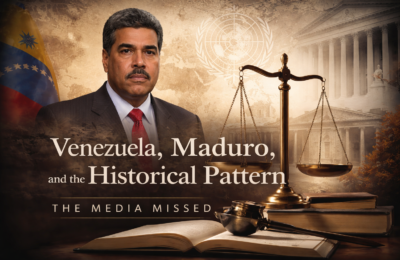Truth Matters, Part 3: A Response to Katherine Maher’s TED Talk
“The truth of the matter is very often, for many people, what happens when we merge facts about the world with our beliefs about the world.”
—Katherine Maher, TED Talk, 2021
Translation: Welcome to the post-truth buffet—where everyone brings their own ingredients, and the only rule is “don’t yuck my yum.”
Katherine Maher captures the spirit of our cultural moment in a single, head-tilting sentence. Her take? Truth is a personal recipe—a little experience, a splash of identity, maybe a dash of “what feels right.” Mix it up and voilà: your truth. Add 7.8 billion people, and suddenly we’re all taste-testing each other’s realities while pretending this is fine.
But spoiler alert: this is not fine.
This post takes a sledgehammer (and a few well-placed smirks) to the pillars of relativism and expressive individualism. We’ll follow the cultural trail that led us here—through Schaeffer’s despair, Trueman’s psychological man, Pearcey’s fact-value split—and contrast it all with the stable, unchanging truth revealed in Scripture.
Because if truth is just what works for me, the bridge is already burning.
From Truth to Preference: When Reality Becomes a Playlist
Once upon a time (say, before 1960), Western culture still believed in capital-T Truth—things that were true regardless of your feelings about them. Then came modernity’s hangover.
As science couldn’t solve everything, and wars didn’t make people more reasonable, society began to shift:
- From reason to doubt
- From certainty to skepticism
- From truth to taste
Francis Schaeffer called this the line of despair—a philosophical tipping point where people stopped believing in objective truth but didn’t notice the floor was gone:
“Men and women are being fundamentally affected by the new way of looking at truth, and they don’t even know it.”
(How Should We Then Live?, 1976, p. 202)
Then came postmodernism, which kicked the ladder away entirely. No meta-narratives. No moral absolutes. Just perspectives, stories, and vibes. As Nancy Pearcey observes:
“In the postmodern view, there is no such thing as universal, objective truth. There is only the perspective of the group.”
(Total Truth, 2004, p. 318)
Katherine Maher’s TED Talk is a masterclass in this mood: she wants a world where we collaborate across different truths—not by seeking reality, but by suspending it.
Which sounds nice… until the train runs off the tracks and no one can agree whether it was ever on a track at all.
Expressive Individualism and the Inner Emperor
Enter expressive individualism: the idea that your truest self is found by looking inward, naming your feelings, and demanding that everyone else rearrange reality to match them. Thank Rousseau, Freud, and a century of self-help.
Carl Trueman dissects this trend in The Rise and Triumph of the Modern Self. Today, it makes perfect sense to say, “I’m a woman trapped in a man’s body,” because inward experience trumps biological facts. That’s not a fluke—that’s the culture doing exactly what it’s been trained to do.
Maher channels this ethos when she says:
“I’m certain that the truth exists for you and probably for the person sitting next to you. But this may not be the same truth.”
(TED Talk, 2021)
Read: We all get our own reality. Please clap.
But biblically, truth is not autobiographical. It’s theological. It doesn’t emerge from inside us—it descends from above.
Trueman notes this shift has created “the psychologizing of identity, the prioritizing of inner feelings, and the reshaping of society to accommodate those feelings” (2020, p. 47). In short: when feelings rule, truth drools.
Fact-Value Split: Putting Truth in Time-Out
Nancy Pearcey describes modern truth as a split-level house:
- Downstairs: facts—science, logic, things with test tubes
- Upstairs: values—faith, morality, things that make you cry during Pixar movies
Christianity, she says, has been exiled upstairs—treated like a warm blanket for the emotionally insecure.
“Religious truths are no longer considered matters of knowledge. They are now treated as personal preferences.”
(Total Truth, 2004, p. 19)
Maher’s truth model fits snugly in this upstairs-downstairs worldview. Her TED Talk has all the data of a TED Talk, but none of the Theos. God isn’t just absent—He’s irrelevant. Religion doesn’t enter the conversation because it’s been pre-categorized as “not helpful.”
But the Bible never quarantines truth into private spaces. It dares to say:
- “Your word is truth.” (John 17:17)
- “The judgments of Yahweh are true.” (Psalm 19:9)
- “God… cannot lie.” (Titus 1:2)
This isn’t preference. It’s proclamation. The Bible’s truth doesn’t ask for validation. It issues marching orders.
Biblical Epistemology: Truth You Can Build On
Scripture doesn’t flinch at disagreement or diversity. Because truth isn’t decided by poll—it’s revealed by a Person.
- Truth is objective (rooted in God’s unchanging nature)
- Truth is knowable (revealed in His Word)
- Truth is universal (binding on all people in all places)
And unlike expressive individualism, biblical truth doesn’t cater to your inner feelings. It confronts them. It doesn’t just validate you—it sanctifies you.
Paul says:
“Speak the truth in love… grow up in all aspects into Him.”
Ephesians 4:15
That’s the opposite of expressive individualism. It’s transformational realism—truth that doesn’t echo your desires, but reshapes your identity.
Conclusion: From Many “Truths” to One Lord
Maher’s lament about “7.8 billion truths” is valid. It really is hard to live in a world where everyone thinks they’re their own oracle. But her solution—negotiate a shared illusion and call it peace—is like gluing together broken glasses with frosting.
The biblical worldview offers something better:
- A truth outside of us
- A Savior for us
- A Word that speaks to us, even when we don’t want to hear it
In a world that’s fragmenting under the weight of personal truths, we’re not called to be louder. We’re called to be clearer—anchored in eternal reality, not emotional relativity.
As C.S. Lewis warned:
“In a sort of ghastly simplicity we remove the organ and demand the function.”
(The Abolition of Man, 1947, p. 35)
We want virtue without truth, justice without judgment, love without standards. It doesn’t work.
It never did.
Next in the Series:
“What Is Truth?” – Building a Constructive Doctrine of Truth
We’ll stop playing defense and go on offense: What is biblical truth? Where does it come from, how does it function, and why does it matter more than ever in an age of curated narratives and crumbling institutions?
Bring your Bible and your brain. It’s time to build.








